Bolstering Female Farmers’ Climate Resilience and Adaptation

Group photo of farmers, government officials, representatives from Pepsi-Cola (Thai) Trading Co., Ltd., and staff from GIZ.
- The impact of climate change affects everyone, especially the marginalised.
- The RePSC project conducted training for female farmers on sustainable agriculture, greenhouse gas reduction, and promoting the role of women in driving societal, community, and agricultural changes.
- The training has enhanced the capabilities and elevated the role of women in the agricultural landscape of Thailand in coping with climate change through sustainable farming practices.
Climate change affects everyone, but not equally. Vulnerability to climate change is exacerbated by inequity and marginalisation linked to gender, ethnicity, low income, and other socioeconomic factors. This is why the Building a Climate Resilient Potato Supply Chain Through a Whole-Farm Approach (RePSC) programme recently hosted an exclusive training session for female farmers only. Up to 50 female leaders, all active members of RePSC. gathered in Chiang Rai’s Wiang Pa Pao district for two days to not just learn about sustainable agriculture, but also share their views on why women are essential for pushing climate resilience and adaptation into action. Additionally, they will serve as volunteer agricultural representatives, actively applying and disseminating the knowledge gained from the training within their communities and beyond.
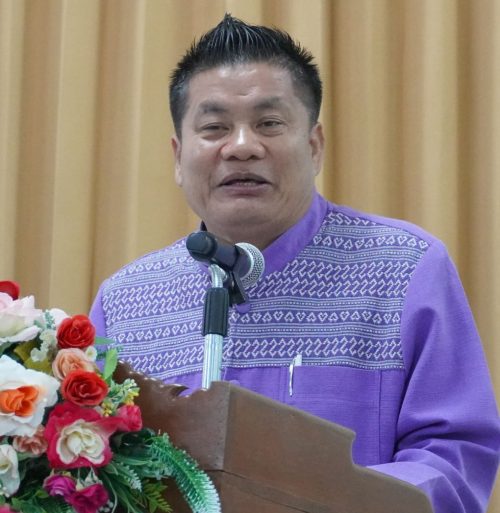
Lt Dujdeaw Wongpak, Head of Chiang Rai Provincial Agricultural Office, made opening remarks.
“This training equips female farmer volunteers to address greenhouse gas reduction and mitigate the impacts of global warming, including droughts, flooding, pests, and financial instability. With a collective purpose, commitment and participation, we will yield benefits for ourselves, our families, our communities, and our nation,” said Lt Dujdeaw Wongpak, Head of Chiang Rai Provincial Agricultural Office. He also emphasised the significance of the training and its benefits for enhancing farming capacity in Thailand’s agricultural landscape and how female farmers can play a role in driving climate action through sustainable farming practices.
Throughout the two-day workshop, female farmers learned the knowledge and skills necessary for reducing greenhouse gas emission and mitigation, including financial planning for agri-business, rational use of chemicals and biocontrol, from agricultural and academic experts from Mae Fah Luang University, Chiang Rai Provincial Agricultural Office, Wiang Pa Pao District Agricultural Office, Wiang Ka Long Subdistrict Municipality, Pepsi-Cola (Thai) Trading Co., Ltd., and Deutsche Gesellschaft für Internationale Zusammenarbeit (GIZ)
Female farmer volunteers were also introduced to virtual reality (VR) demonstrations on simulating the proper use of personal protective equipment (PPE).
The knowledge and capacity building are aligned with the project’s mission of enhancing the climate resilience of farmers’ capacities in Chiang Mai, Chiang Rai, and Lamphun provinces, empowering them for sustainable farmland management through regenerative agricultural practices leading to capacity enhancement mitigation techniques among farmers and reduction of greenhouse gas emission.
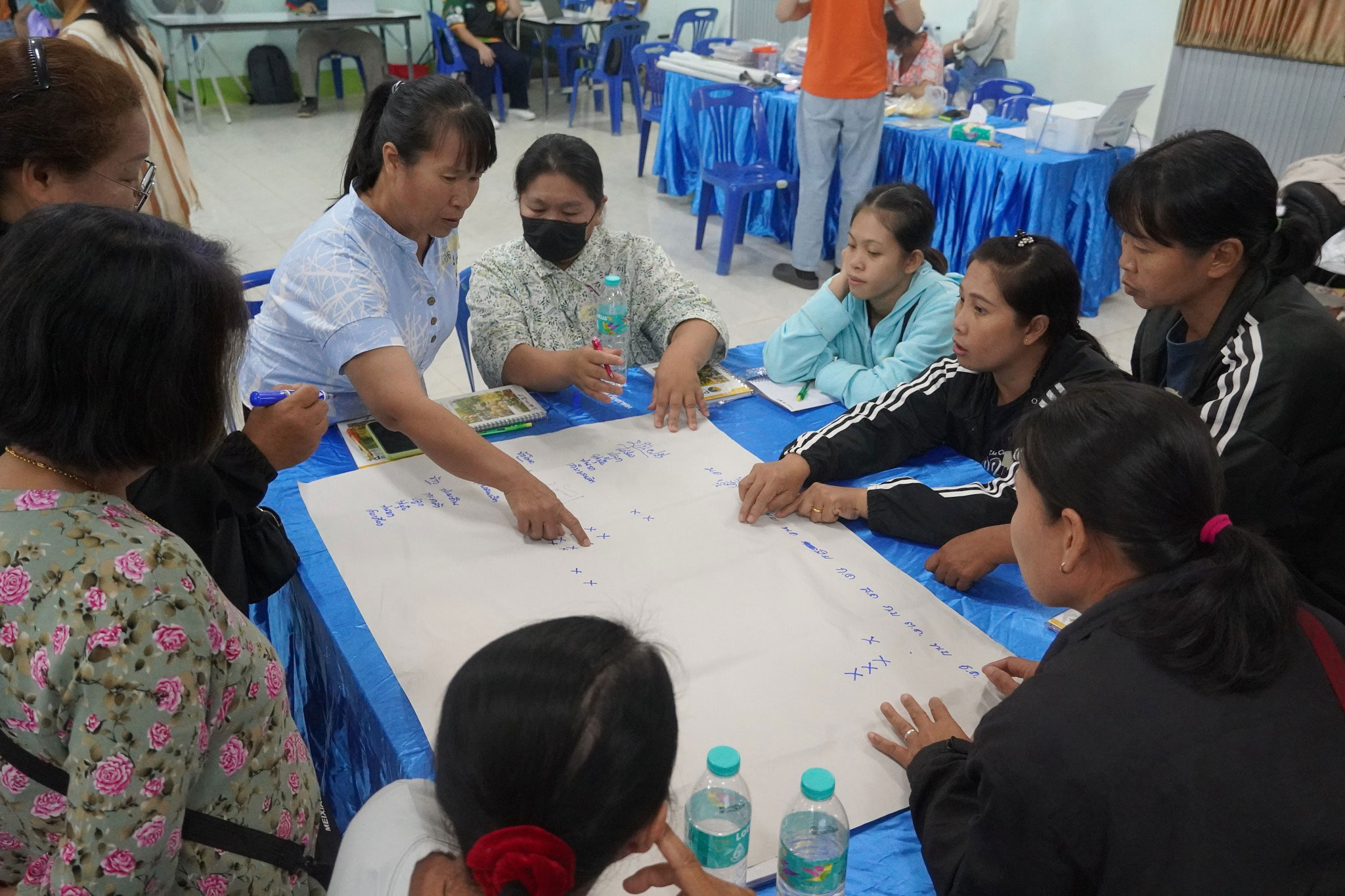
Group Work on crop calendars, financial planning
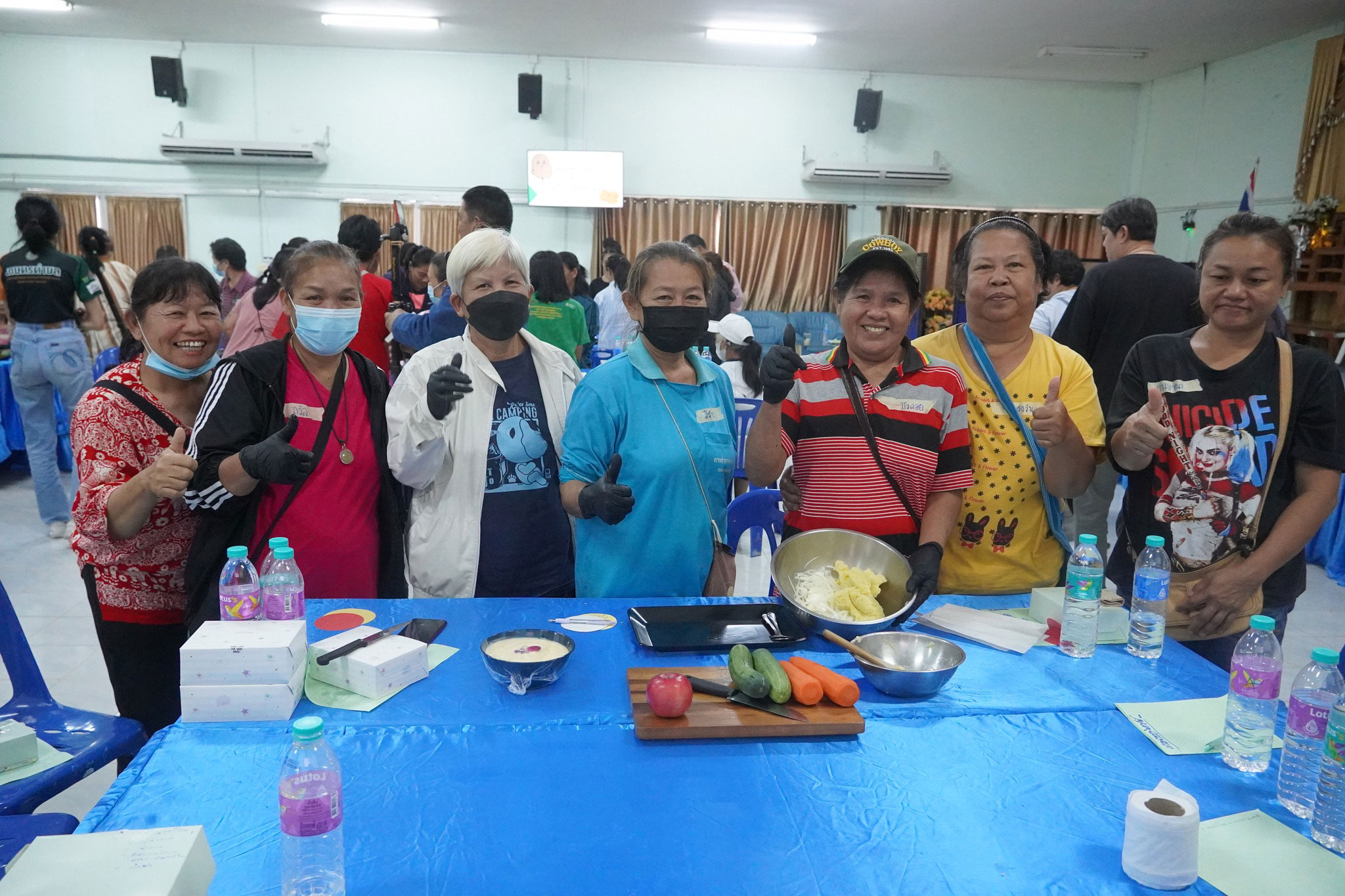
Group Work on adding value to agricultural products (Potatoes)
It has been over three years since Wisa Lakhampa, a farmer from Wiang Kalong sub-district, began practising integrated farming within her own potato and Japanese rice fields. Due to the challenges arising from conventional chemical farming, such as soil acidity and high production costs, Wisa decided to adopt a more sustainable approach. After attending training sessions, she spoke of her insights, stating, “This training has enhanced my understanding of sustainable agriculture, including topics such as tailor-made fertiliser, the use of Trichoderma, and proper chemical application. These practices help reduce costs, increase productivity, promote health, and are environmentally friendly.”
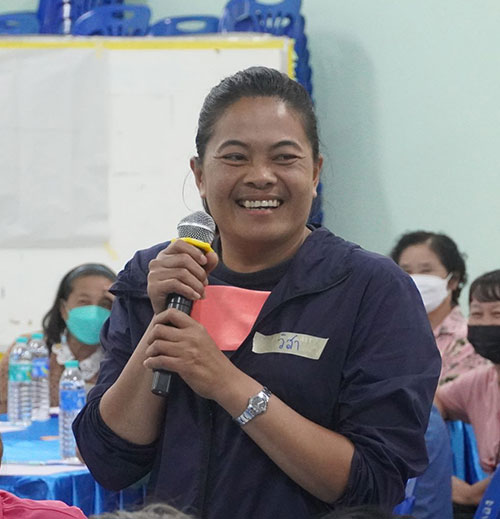
Wisa Lakhampa, a farmer from Wiang Ka Long Subdistrict, shared her thoughts after the training.
Ratchanok Kantha, 54-year-old rice farmer from Mae Chedi Sub-district, also shared her thoughts: “Good agricultural practice begins with financial planning. We can adapt these skills to develop our savings groups and product processing enterprises in our communities to enhance women’s skills and promote community development in the long run.” Additionally, Ratchanok emphasised that this training is highly beneficial for women and the community, providing a platform for female farmers to exchange perspectives on the importance of women in adapting to climate change.
After this training session, the project will continue to provide guidance on sustainable agriculture and monitor the practices of farmers who participated in this training. There are plans to establish and develop volunteer women farmer groups in other project areas in Chiang Mai, Chiang Rai and Lamphun provinces. Sustainable agriculture and climate resilience will be a focus, so, farmers will be able to disseminate this knowledge and skills to implement in their communities in the long run.
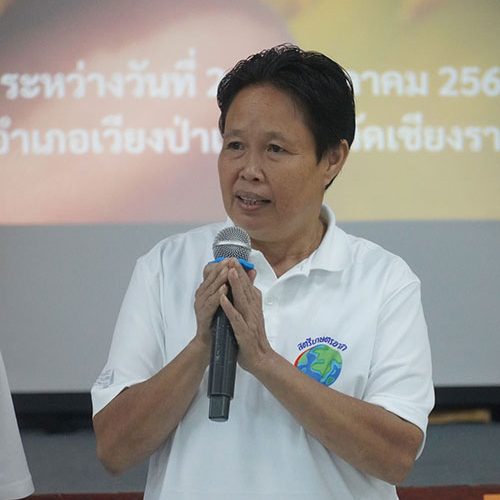
Ratchanok Kantha, a farmer from Wiang Ka Long Subdistrict, expressed her thoughts after the training.
German Müller
Project Director of RePSC
Email:german.mueller(at)giz.de